
Contents
BBC Enterprises
After a bumpy start, the record label seemed to be settling itself in nicely by 1969. Soon though, things had changed, with the formation of BBC Enterprises from the merger of TV Enterprises with Radio Enterprises in October 1968. Now Enterprises was the parent organisation tasked with making money from BBC programmes and the BBC record label was the most visible division selling records to the public.
The sale of programmes for broadcast overseas carried out by BBC Television Enterprises would continue and remains an integral part of the BBC’s operations.
1968-69
According to the BBC Handbook from 1970, which would have been published in late 1969. “The catalogue at present comprises 31 records with total sales approaching 100,000; another 40 are under way”. Cymanfa Ganu was the runaway success though it “reached fifth place in the LP charts and has sold over 45,000 copies.”
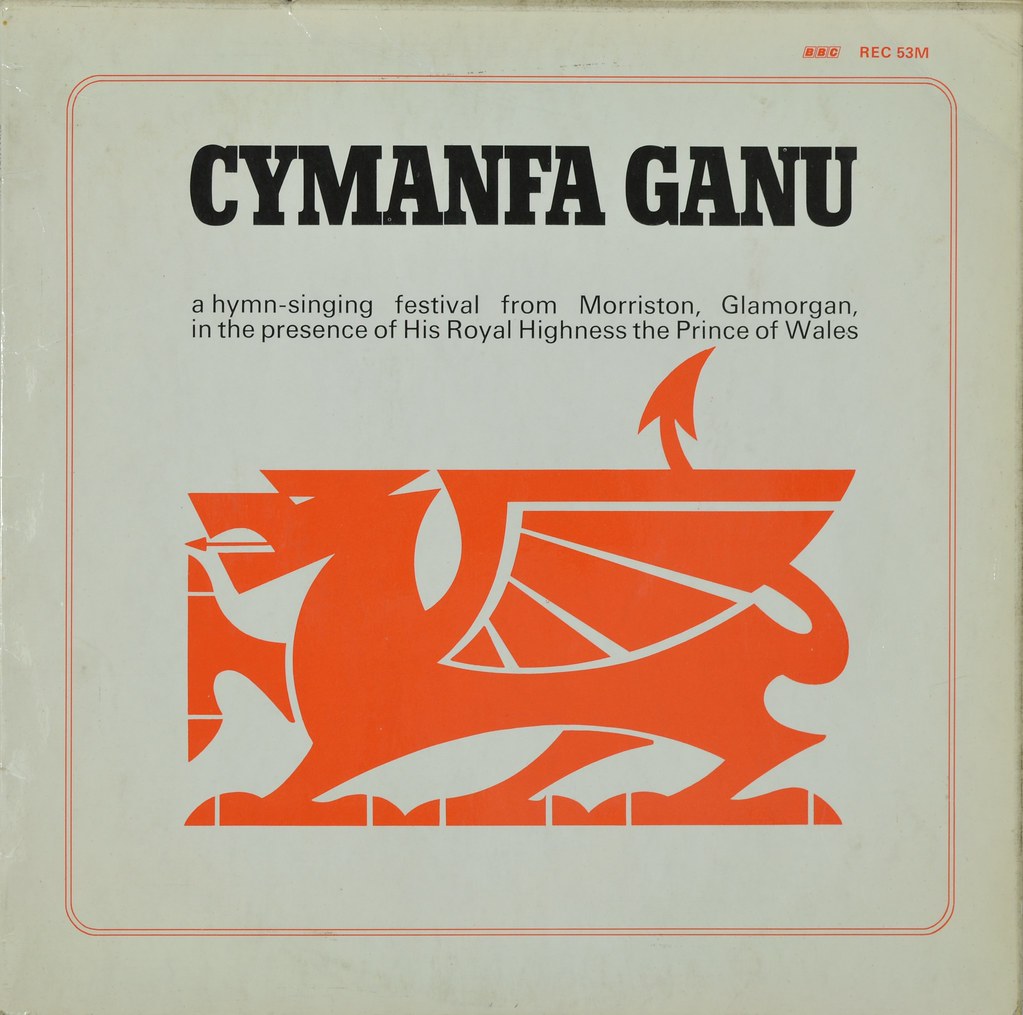
A British Sampler (REB 41, 1969) was unusual as it was created in collaboration with the British Travel Association. “A special commission elicited a record on British sound pictures for foreign visitors.”

Not all releases were destined for the shops. “Records like ‘Woman’s Hour’, which bear a direct and obvious relationship to radio broadcasting, are usually marketed by mail order.” This confirms the price code REMO stands for Mail Order.
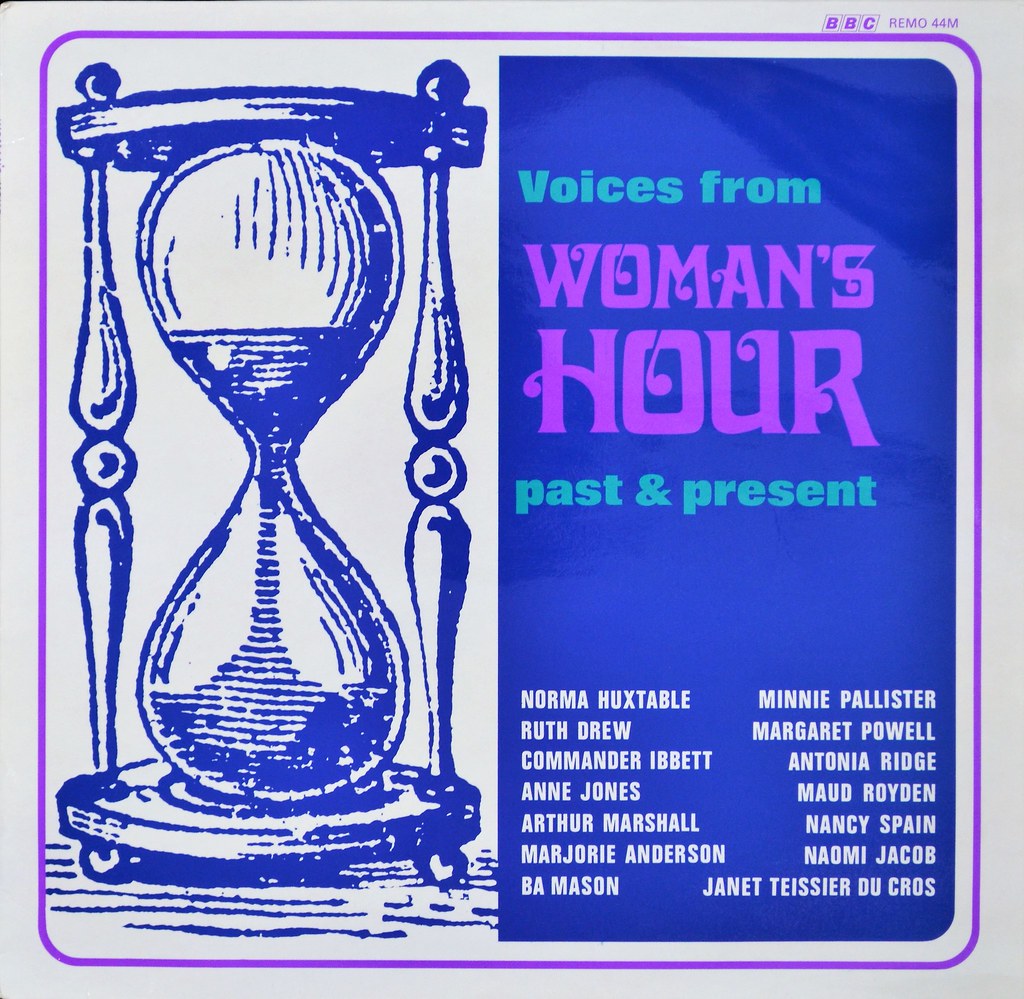
1969-70
By the next year, sales had continued to grow “During the year ending 31 March 1970 nearly 150,000 records were sold through the retail trade or by mail order.”
This was also the time when their international business started to take off.
“The first steps to establish the BBC label in overseas markets were taken early in 1970 when an agreement was signed with the Westminster Recording Company of America for the distribution of BBC records in the USA. Arrangements for distribution in Australia, Canada, New Zealand and Scandinavia are well advanced and discussions are also being held to promote BBC records in other parts of Europe and the Far East.”

The Music Of Africa (REC 130, 1971) was released in the USA before the UK. As detailed in Top Of The Box Volume 2 (Time Worthington, 2022), Tutankhamun’s Egypt broadcast on BBC Two in the spring of 1972 featured music by Delia Derbyshire, of the BBC Radiophonic Workshop. Her title piece made with the sound of Tutankhamun’s trumpet was inserted as track 1 of the UK release. The USA release came before this piece was finished and seems to be one of a few LPs which were created for the Horizon magazine label under American Heritage but not released over here. As the sleeve notes of the UK release make clear
This record was originally produced for the American Heritage Publishing Co and was issued asa
Music Of Africa (REC 130, 1972)
companion to their publication “The Horizon History of Africa'” The material for this record comes
from the Archives of the BBC
Another example The Music of Primitive Man (P 11857, 1972 ) was “Produced by arrangement with the British Broadcasting Corporation for Horizon” and this one may account for a missing release in the RE catalogue numbers.
A BBC record label
The company branding went through an awkward phase at this time. Throughout much of 1969 releases wore a simple BBC logo on the front of the sleeve. The labels and logo on the back sleeve remained BBC Radio Enterprises though. Gradually, through that year, the label changed from the striking Radio Enterprises pulse to a giant ‘e’ for Enterprises with tiny BBC inserted into the letter shape.
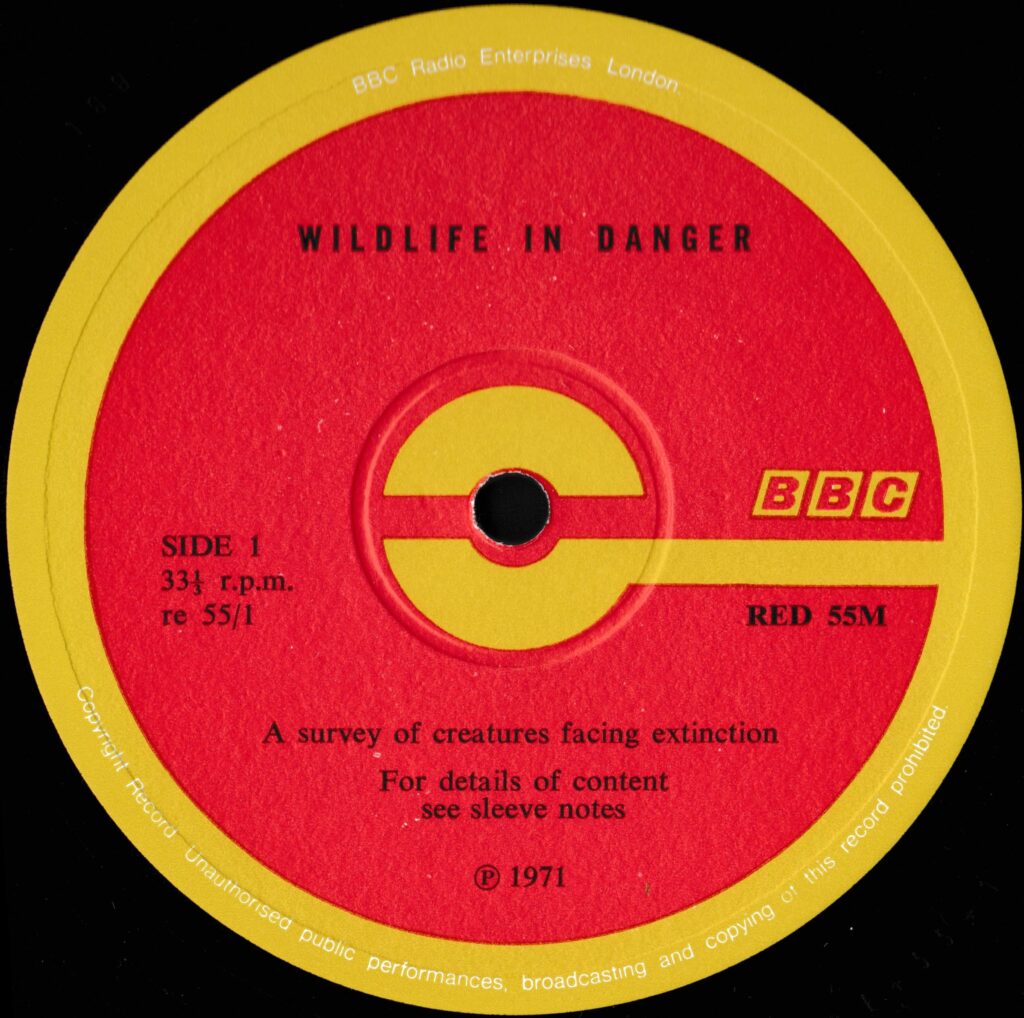
By the end of 1969, the Radio Enterprises logo had gone for good, but the new label still had ‘BBC Radio Enterprises London’ company name printed around the top of the outer ring.
There was some overlap in this and the previous company name/label eras though. Many records through 1969 mixed the BBC logo with Radio Enterprises labels. This example, Bernard Shaw (REB 32, 1969) has the font sleeve with BBC label logo, but not the outlined design used else where. And the back sleeve carries the BBC Radio Enterprises logo. Note that this logo has also evolved slightly and BBC is inverted (white on black) in contrast with the other text, which indicates a mover further towards the BBC label branding.
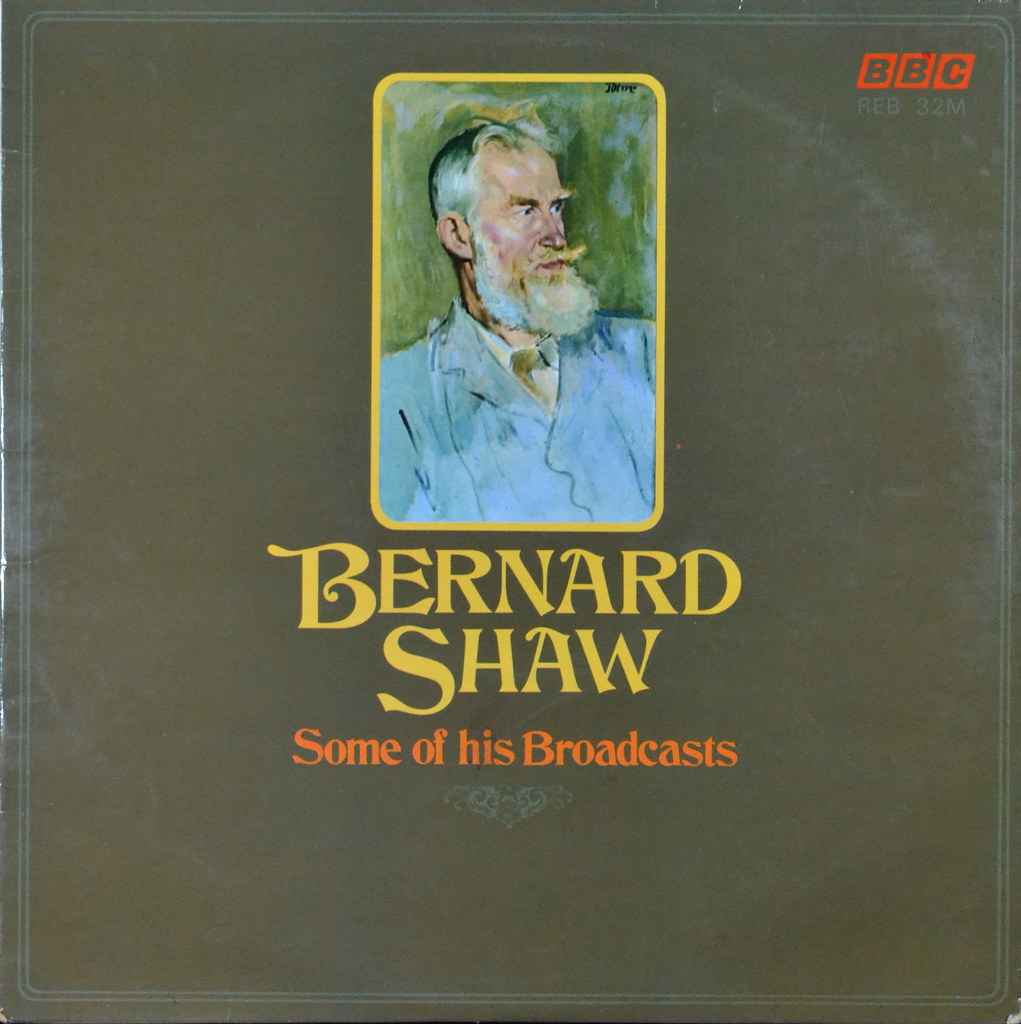

On The BBC Label
So, was the record company now called BBC Radio Enterprises, BBC Enterprises or just BBC?
A catalogue from early 1970, apparently only for staff, is titled “Records on the BBC label” and boasts of BBC Enterprises’ release of 70 records “on the BBC label”. So we can safely say that any releases with this label are on the BBC label. Other BBC Enterprises labels did come into being, but not till years later and this notion of a BBC label and perhaps some others didn’t really happen. BBC Enterprises did continue to licence material in the UK and abroad, but they never really started entirely new companies or labels.
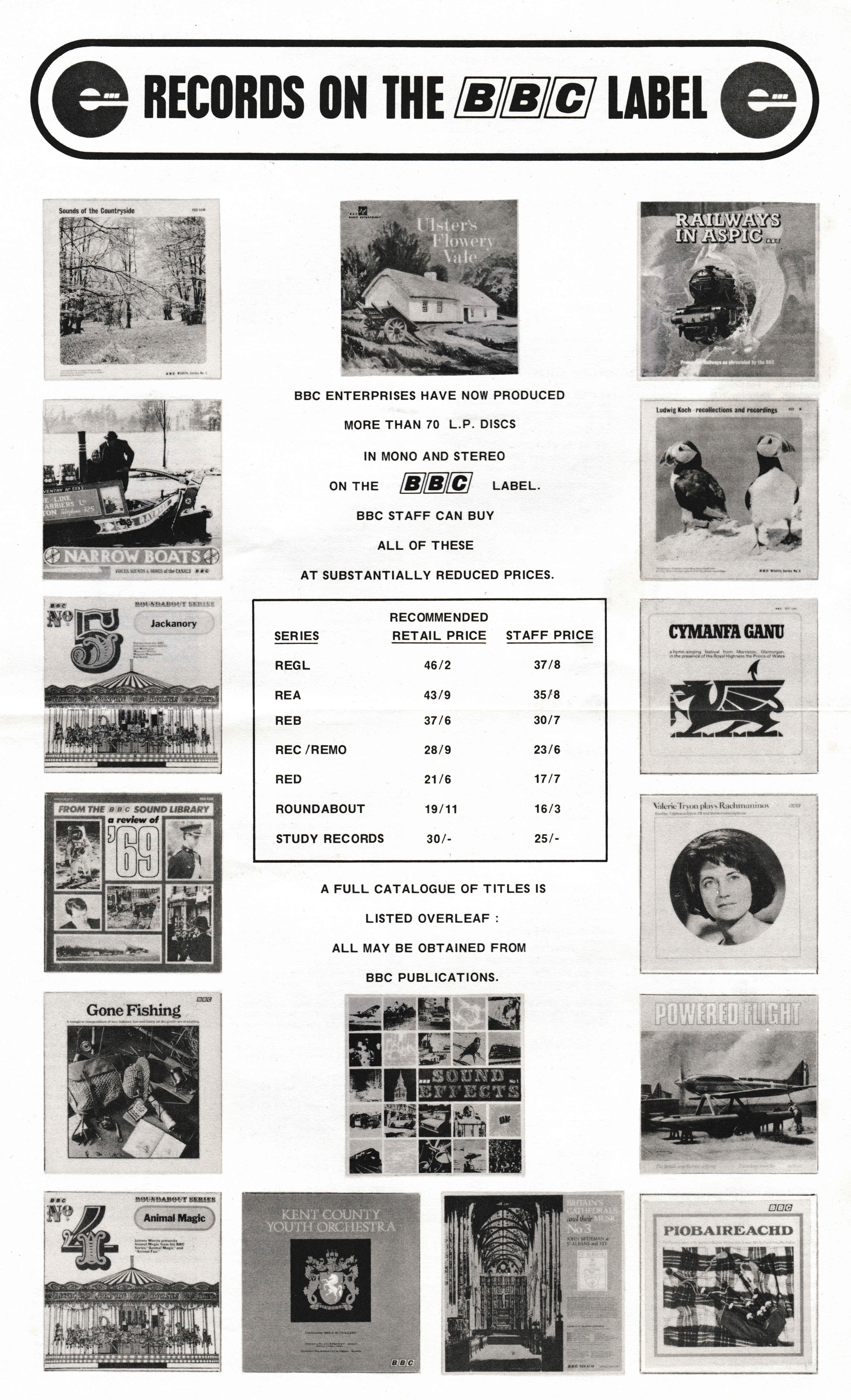
The first BBC singles
It was during this period that the first singles were released. Just two in 1970 and three with the ‘e’ and BBC label in total.
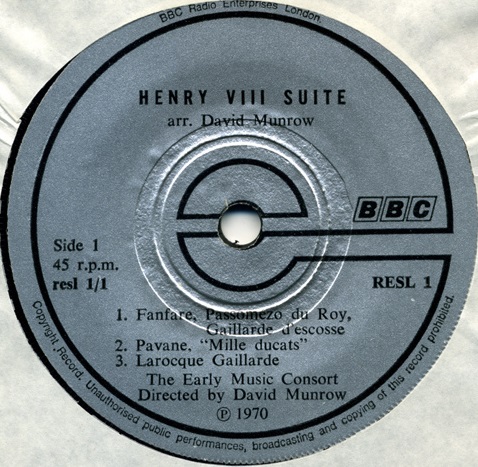
Precision Tapes
In December 1970 Billboard magazine reported on the new Dolby B-type noise reduction system being introduced by Precision Tapes (a subsidiary of Pye Records). This includes news of a forthcoming cassette from BBC Enterprises. John Peel presents Top Gear (REC 52) was released as an LP in 1969 so this cassette version (ZCBBC 52) may have been chosen simply because it was stereo and they wished to test the waters, rather than a huge demand.
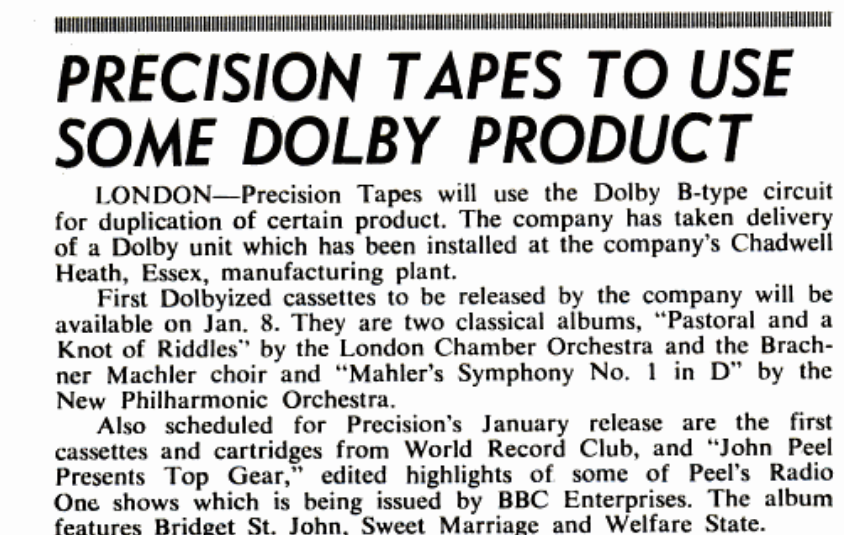
Interestingly one of the other few cassettes released with Precision at this time was Monty Python (ZCBBC 73), which was also released in stereo. The LP (REC 73) was only available in mono and indeed the later cassette releases were in mono too. One of the reasons the Pythons cited for breaking with BBC Enterprises was the fact that they were not offering a stereo release, something they and their fans, who included many rock stars, expected.
